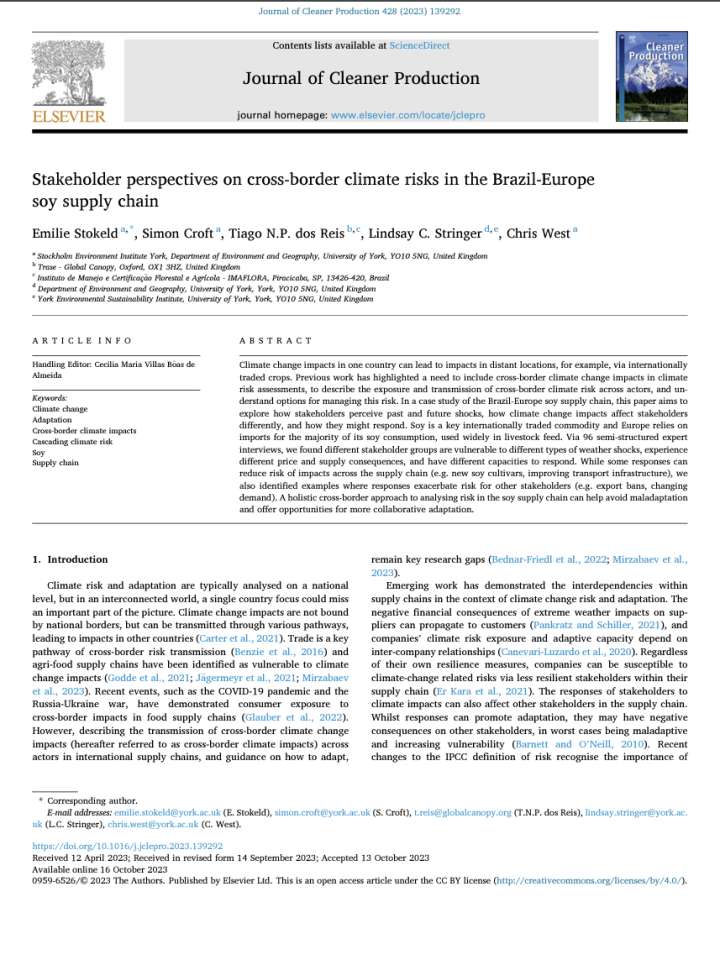Stakeholder perspectives on cross-border climate risks in the Brazil-Europe soy supply chain
In a case study of the Brazil-Europe soy supply chain, this paper aims to explore how stakeholders perceive past and future shocks, how climate change impacts affect stakeholders differently, and how they might respond. Climate change impacts in one country can lead to impacts in distant locations, for example, via internationally traded crops. Previous work has highlighted a need to include cross-border climate change impacts in climate risk assessments, to describe the exposure and transmission of cross-border climate risk across actors, and understand options for managing this risk. Soy is a key internationally traded commodity, and Europe relies on imports for the majority of its soy consumption, used widely in livestock feed. Via 96 semi-structured expert interviews, the authors found different stakeholder groups are vulnerable to different types of weather shocks, experience different price and supply consequences, and have different capacities to respond. A holistic cross-border approach to analysing risk in the soy supply chain can help avoid maladaptation and offer opportunities for more collaborative adaptation.
The publication found the following:
- The consequences of climate shocks for stakeholders along the supply chain are highly influenced by their relationships to other stakeholders, and their relative power in determining prices.
- Stakeholders have a range of different potential responses which could reduce this cross-border climate risk, but which, in some cases could redistribute or exacerbate risk for other stakeholders.
- From a strategic perspective, companies may benefit from a better understanding of their surrounding stakeholders' exposure, vulnerability, and potential responses to climate risks.
- The distribution of risk across stakeholders and the repercussions of their responses are important to consider as part of efforts towards just resilience.
Explore further
